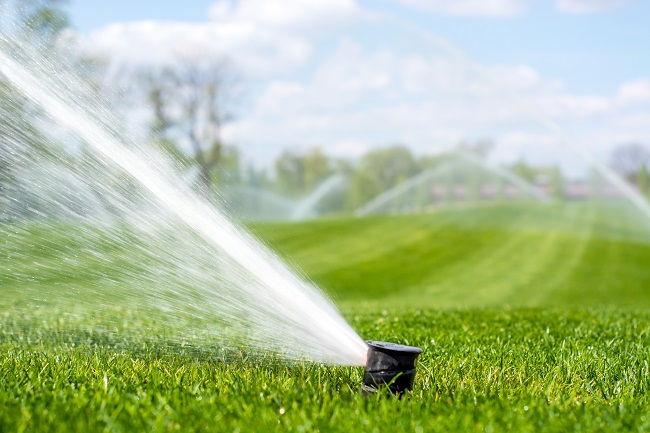Essential Water Conservation Tips for Commercial Landscapes
In an era where sustainability is key, water conservation in commercial landscaping has become more important than ever. At Metro Lawn Care, we are dedicated to providing solutions that not only enhance the beauty of your commercial property but also promote responsible water usage. This blog post will delve into practical tips and strategies for conserving water in commercial landscapes, ensuring efficiency and environmental responsibility.

Understanding the Importance of Water Conservation
The Environmental and Economic Impact
Water conservation in landscaping goes beyond environmental responsibility; it also makes economic sense. Reducing water usage can significantly lower utility bills and maintenance costs, making it a smart financial choice for businesses.
Compliance with Local Regulations
In many regions, water conservation is not just a recommendation but a requirement. Adhering to local water usage regulations is crucial for legal compliance and community goodwill.
Smart Irrigation Practices
Investing in Efficient Irrigation Systems
Modern irrigation systems, such as drip irrigation and soaker hoses, are designed to reduce water wastage. These systems deliver water directly to the roots, minimizing evaporation and runoff.
Utilizing Smart Controllers
Smart irrigation controllers can adjust watering schedules based on weather conditions, soil moisture levels, and plant requirements. These devices are essential for optimizing water usage and preventing overwatering.
Choosing the Right Plants
Opting for Drought-Tolerant Species
Incorporating drought-resistant plants into your landscape design can significantly reduce water requirements. These plants are adapted to thrive with minimal water, making them ideal for sustainable landscaping.
Native Plant Landscaping
Using native plants in your commercial landscape is another effective water conservation strategy. Native species are naturally acclimated to local climate conditions, requiring less water and maintenance.
Mulching and Soil Management
The Benefits of Mulching
Mulch helps retain soil moisture, reducing the need for frequent watering. It also suppresses weed growth, which can compete with your plants for water.
Improving Soil Quality
Healthy soil retains water more efficiently. Regularly adding organic matter and ensuring proper aeration can enhance soil’s water-holding capacity, further reducing irrigation needs.
Regular Maintenance and Monitoring
Conducting Routine Inspections
Regular checks of your irrigation system can identify leaks or inefficiencies that lead to water wastage. Prompt repairs and adjustments ensure that your system operates optimally.
Training Staff on Water Conservation
Educating your landscaping team about water-saving practices is crucial. Ensuring that everyone understands the importance of conservation can lead to more mindful water usage.
Innovative Landscaping Techniques
Implementing Xeriscaping
Xeriscaping involves designing landscapes to minimize water use. This technique includes selecting appropriate plants, optimizing irrigation, and using decorative stones or gravel to reduce water-dependent areas.
Rainwater Harvesting
Collecting and using rainwater for irrigation is an excellent way to conserve water. Installing rain barrels or cisterns can provide an eco-friendly water source for your landscape.
Water conservation in commercial landscaping is not just about adhering to regulations or cutting costs; it’s about contributing to a sustainable future. Metro Lawn Care is committed to providing services that align with these principles, helping businesses create beautiful, eco-friendly landscapes that are both water-efficient and cost-effective.
Looking to transform your commercial landscape into an environmentally responsible and water-efficient space? Contact Metro Lawn Care today for expert advice and services.
